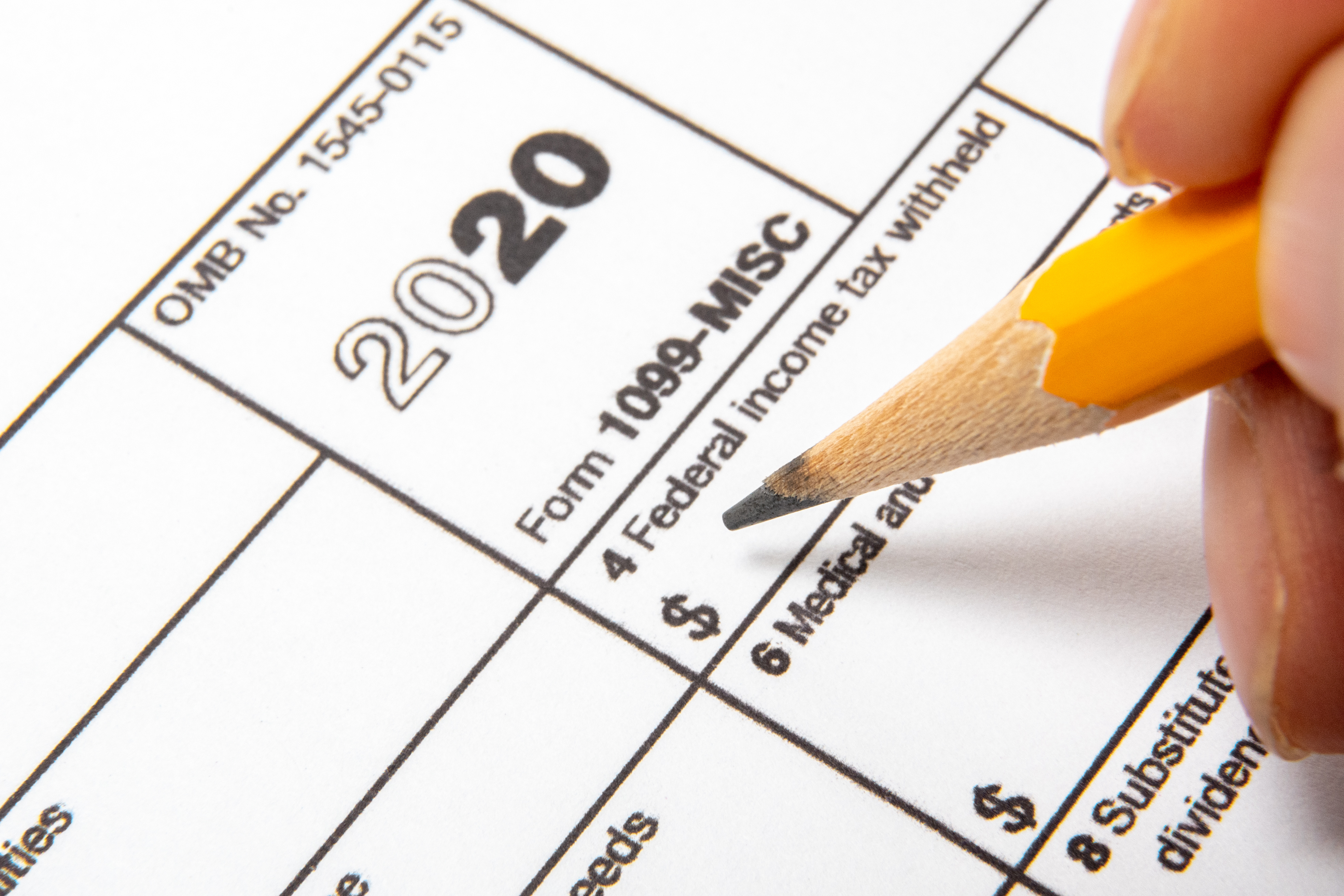Forms for Filing Taxes as an Independent Contractor
If you are an independent contractor, you will get a W-9 (Request for Taxpayer Identification Number and Certification) from the person paying you. You must complete this form and provide a social security number if you are a sole proprietor, an Employer Identification Number (EIN), or if you are an organized business, such as an LLC or corporation.
At the end of the year, instead of getting W-2 forms for your taxes, you will get a 1099-Misc, which shows how much your client paid you. You will only receive a 1099-Misc if you made $600 or more from your client. However, you still have to claim those earnings under $600 on your taxes, even if you don’t get a 1099-Misc. In some cases, you might not receive a 1099-Misc, even if you made $600 or more. If you are unsure of whether the IRS considers you an independent contractor or are having trouble filing taxes, you should have a business tax attorney help you file your taxes.
Filing Your Taxes
The main form you need to file is the Schedule C. Some independent contractors might be able to file Schedule C-EZ if they have less than $5,000 in expenses. This form determines how much self-employment tax you need to pay. This tax does include the Medicare tax and the Social Security tax. If you are an employee, your employer pays half of these taxes. If you are self-employed, you pay the full amount yourself, though there are some adjustments to the percentages. Of the 15.3 percent of your income for this tax, 2.9 percent goes to Medicare and 12.4 percent goes to Social Security. These amounts are in addition to the federal income tax you pay.
Business Expense Deductions
The tax code, including business expense deductions, changes often. You should always make sure that you are taking the proper deductions to lessen your tax burden. However, you don’t want to take a deduction that no longer exists, or you might end up owing the IRS more money. Even if you are familiar with the new tax codes, you could miss a deduction or take a deduction that no longer exists. Some deductions that might be available include the Qualified Business Income Deduction, interest, certain taxes, rent, some insurance premiums, legal fees, professional fees, the business use of a percentage of your home, and travel and meal expenses. You could also deduct a percentage of maintenance for your home, upgrades you made to your home, and utilities.
Estimated Tax Payments
If you believe you will owe over $1,000, you should make estimated tax payments, usually quarterly — April 15, June 15, September 15 and January 15. If you do not, the IRS fines you with the estimated tax penalty, though it is a small amount. Paying throughout the year ensures that you won’t have to come up with a lump sum when it’s time to file your taxes on April 15.
Employees or Independent Contractors
If you hire people for your business, you must determine whether you want to pay them as employees or as independent contractors. The tax liabilities are different for you as an employer or as a client. If those working for you are employees, you will need to report and withhold taxes from the employees’ paychecks. If you prefer to treat your workers as independent contractors, you have to make sure that your relationship with them meets the IRS’s definition of an independent contractor relationship. The tax attorneys at France Law Firm will be able to discuss the pros and cons of both relationships and can help you determine what is best for you.
Contact France Law Firm
If you are self-employed and you need help with the complicated tax code for independent contractors, contact France Law Firm for help with your taxes and other business administration.






















